From French Television to Sacred Dance: "I Felt Out of Place There"
Joseph the dancer has been performing on stages since age 9, participated in French TV shows and worldwide, ultimately finding his place in Israel, staying connected with Rabbi Mordechai Eliyahu. "For the past 20 years, I haven't traveled to France despite many invitations for performances and lectures," he says. "I simply can't breathe the air there anymore."
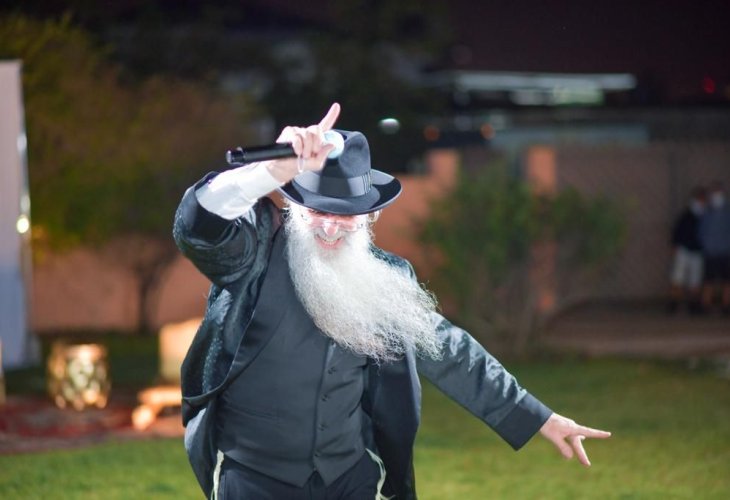 Joseph Levy
Joseph LevyHis name is Joseph, but he abandoned his original name over 20 years ago when he first met Rabbi Mordechai Eliyahu, may his memory be blessed, who gave him the nickname "Joseph the Dancer." "Even in heaven, you are known by this name," the rabbi assured him. Since then, this name goes with him everywhere, truly reflecting his inner self.
"I always loved to dance, ever since I was a little child," he shares. "Back then, it was jazz dancing and imitating mainly TV actors. Although I achieved great success, it was so different from what I do today, when I get to dance and bring joy to people in holiness."
A Child of Dance
Joseph grew up in France, in a traditional family. "At home, we knew almost nothing about Judaism," he recalls. "There was Kiddush on Shabbat, but not much beyond that. There was no Jewish community around us, so there was no source to learn from. Religion wasn't part of us."
During his childhood, he attended a non-Jewish school, being one of the few Jewish students there. "Unfortunately, most teachers were anti-Semitic," Joseph recounts. "They didn't harm me, but they definitely allowed students to attack me, like when they taught about the Holocaust where Jews were murdered, classmates would yell at me: 'Too bad they didn't kill you too!' The teachers didn't respond."
Joseph is the youngest of five siblings. "Ironically, my siblings recall our father telling them more about Judaism when they were kids. Over the years, we all drifted away, and those concepts faded."
As mentioned, from a young age, Joseph was drawn to the entertainment world, particularly dance and song. "It started very early for me," he says. "At just nine years old, I was a great impersonator and landed my first performance contract on my own."
Recalling how events unfolded, he shares: "We were on a family vacation where a competition was being held, and one of the singers asked the audience to come and do impressions on stage. Without hesitation, I approached him and said I wanted to try. He brought me up, and I started mimicking singers of that era. It must have been very successful and accurate because people were rolling on the floor laughing... I remember enjoying it so much, not because of the attention, but because I genuinely loved performing. After the show, I spoke with the manager and agreed to go on a tour of performances together."
Joseph quickly became a rising star. "I would imitate the great singers of France, not just in song but also in movement and speech. We toured the whole country with these performances," he describes.
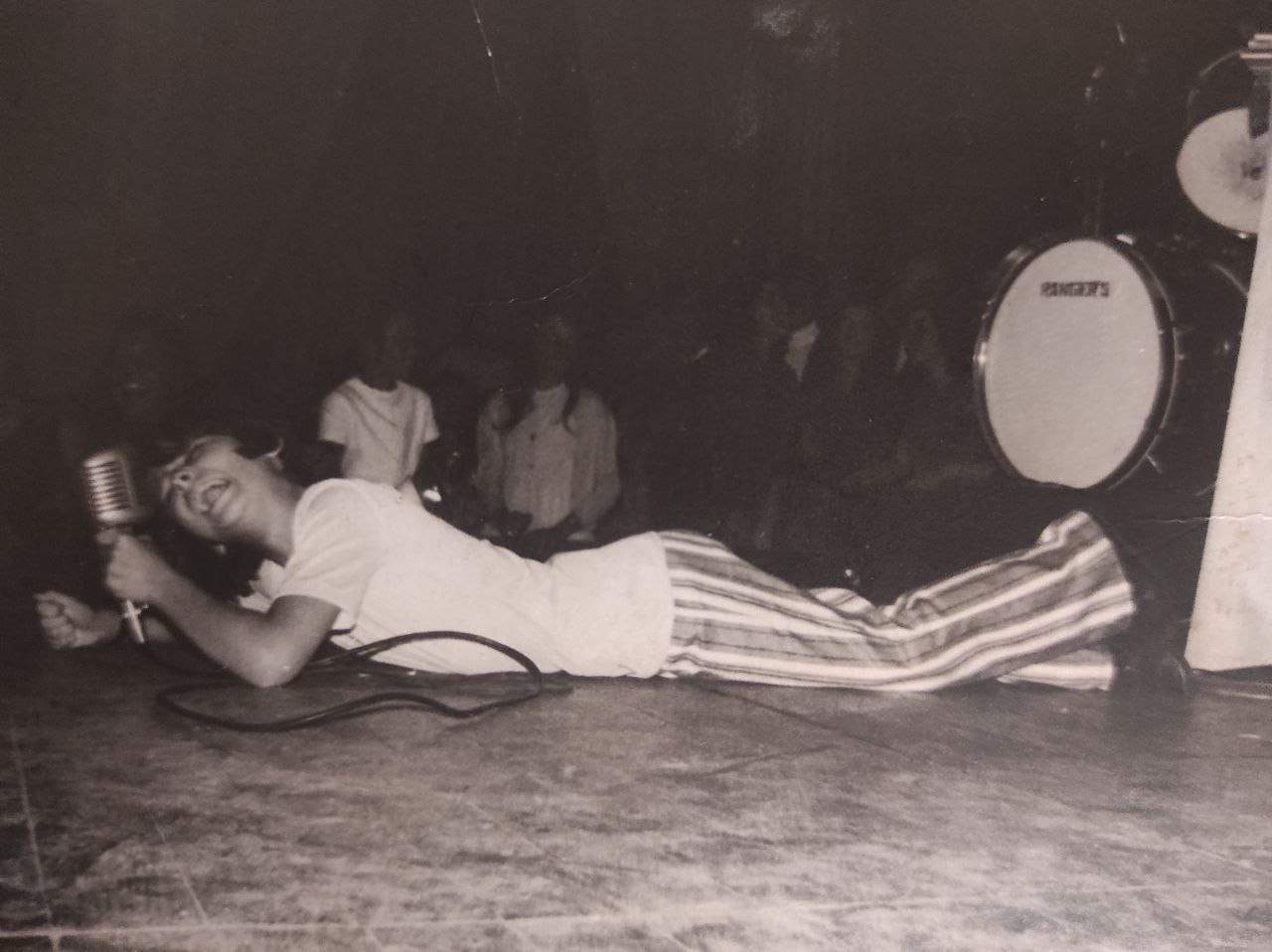
Didn't it affect your studies?
"Initially, no, because my parents protected me and allowed me to perform only during vacation days. Later, for a brief period, it became a sort of career, even affecting my studies, but I was a gifted student and managed to excel in both classes and performances. It was during that time my voice changed, and I realized that mimicry was less suitable for me."
Joseph gave up impersonations but not the stage. He soon entered a new world—the world of dance. "Since I was a kid, I loved to dance and did it a lot, but once I realized this was going to be my next field, I invested heavily in it. I would watch dancers for hours, learning their moves, syncing them to music, and just danced and danced... Eventually, I was offered to participate in a competition where I received a medal, which pushed me forward. But the interesting part is that I barely learned dancing professionally; it all came from the heart. My official dance training only came when I arrived in Israel."
Why did you go to Israel?
"Yes, as a young man, I came to Israel for a short period of six months. I came as a tourist because I felt that my soul wanted to experience the land of Israel and meet it. I planned to be here for a short time, but it extended and extended. During that period, I specialized in dance and got my first exposure to Israeli culture."
Interestingly, he didn’t learn Hebrew at that time. "My dance teacher claimed there was no point in learning Hebrew since I would perform worldwide, so it made more sense to learn English. Thus, I used the time in Israel to pick up English, and funny enough, to this day my English has an Israeli accent..."
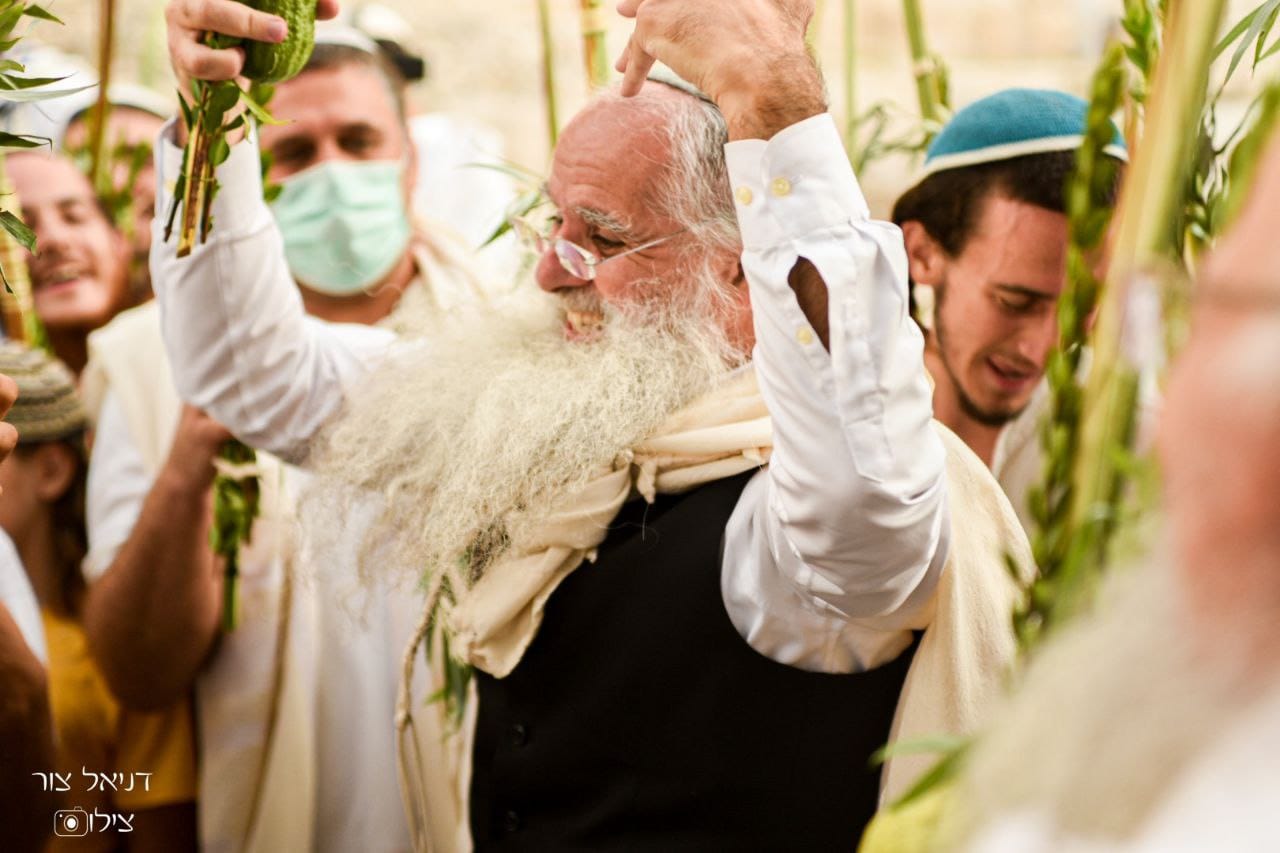 (Photo by Daniel Tzur)
(Photo by Daniel Tzur)
The Soul Seeks
From Israel, he continued to America under discussions of signing a contract with a big company preparing to produce a record. "For a year, I was in talks with that company," he elaborates, "occasionally changing points or commas in the contract, ultimately leading to nothing professionally, but it led to something else—my journey of returning to faith started. At that stage, it wasn't yet a true return since I had no role model, but questions arose, and I sought answers. I felt something was shifting within me; today, I know my soul was seeking truth."
Meanwhile, he returned to France and started working regularly on French television, appearing as a dancer on famous shows, even on Shabbats. "I already knew one had to observe Shabbat, but I was completely unaware of the prohibitions it entailed. For instance, I didn't know working was forbidden. I was so lacking in basic Jewish knowledge."
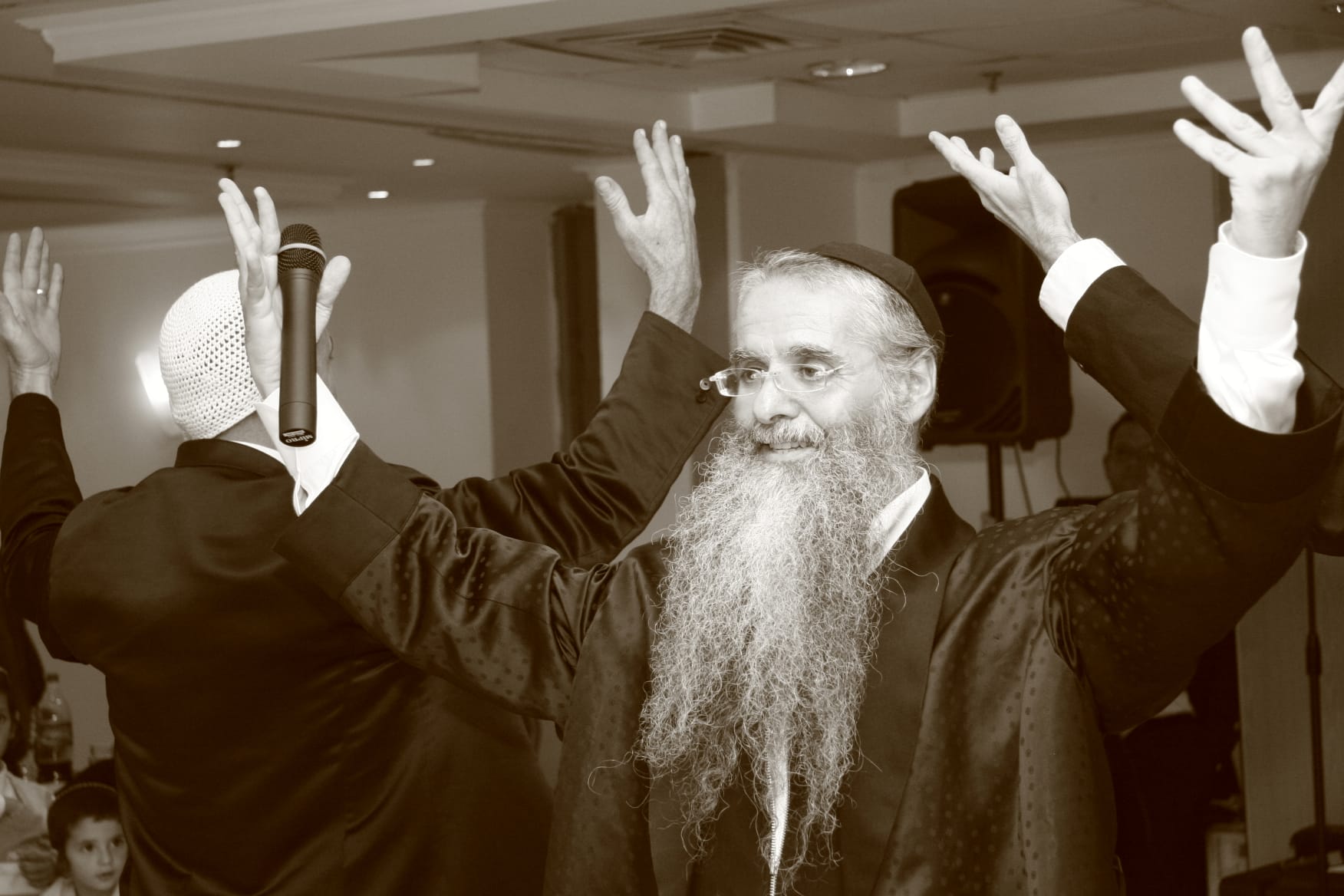
How did you find your way back to faith?
"It began when one day they offered me to join a Torah lesson at the synagogue. This was a new experience for me, as I didn’t know one could study Torah. At 21, I attended that lesson, and it was very exciting for me, as until then, I had visited a synagogue maybe ten times in my life. The class was given by a Chabad Rabbi, which intrigued and led me to learn more. I must say that discovering the Torah opened up a whole new world for me. Until then, I felt a kind of emptiness and internal sadness. The only times I felt happiness were when I was on stage. But as I started studying Torah, I felt as though I was reborn, with new energy and a clear life purpose—I am Jewish, and this is my life.
"Gradually, I also started wearing tefillin and even attempted to stop working on Shabbat, which ended in a complete failure since most of my TV work was on Shabbats. Eventually, I shifted direction, going to work on Shabbat and then observing it otherwise once back home. In my innocence, I thought I was doing the right thing, and that's how I continued."
He truly began observing Shabbat only at 28 years old. "This was after a long period where I had already strengthened my understanding of what was truly required of me. Every time I violated Shabbat, it literally pained me, and I realized my goal was to observe Shabbat properly. When I started to keep it, I was still working on TV, but I had a non-Jewish friend there who understood me deeply and got me a substitute every Shabbat. He was truly a good emissary, allowing me not to lose my job."
The more Joseph grew closer to Judaism, the more he felt his soul could no longer remain in France, and his long-burning desire to make aliyah to Israel ignited further. "In just a few days, I concluded that I was leaving France and moving to Israel," he says, "I came without knowing what I was planning or what awaited me, but I had heavenly assistance—immediately upon my arrival, someone told me they knew a dance troupe looking for a dancer and could recommend me."
Joseph hesitated. Shortly before moving to Israel, he had been in a serious car accident causing him to stop dancing altogether. "Following the accident, I concentrated mainly on acting and completely stopped dancing," he explains. "But right after I arrived in Israel, someone informed me, 'I've arranged a meeting with a dance troupe,' and when I got there, I passed the necessary tests. Only afterward did I remember to tell them, 'But I can't dance at all...' By then it was too late, as they had already accepted me. The dance troupe leader decided to connect me with someone who could help rehabilitate the issues caused by the accident using a special method. Miraculously, a month later, I returned to dancing as if the accident had never happened."
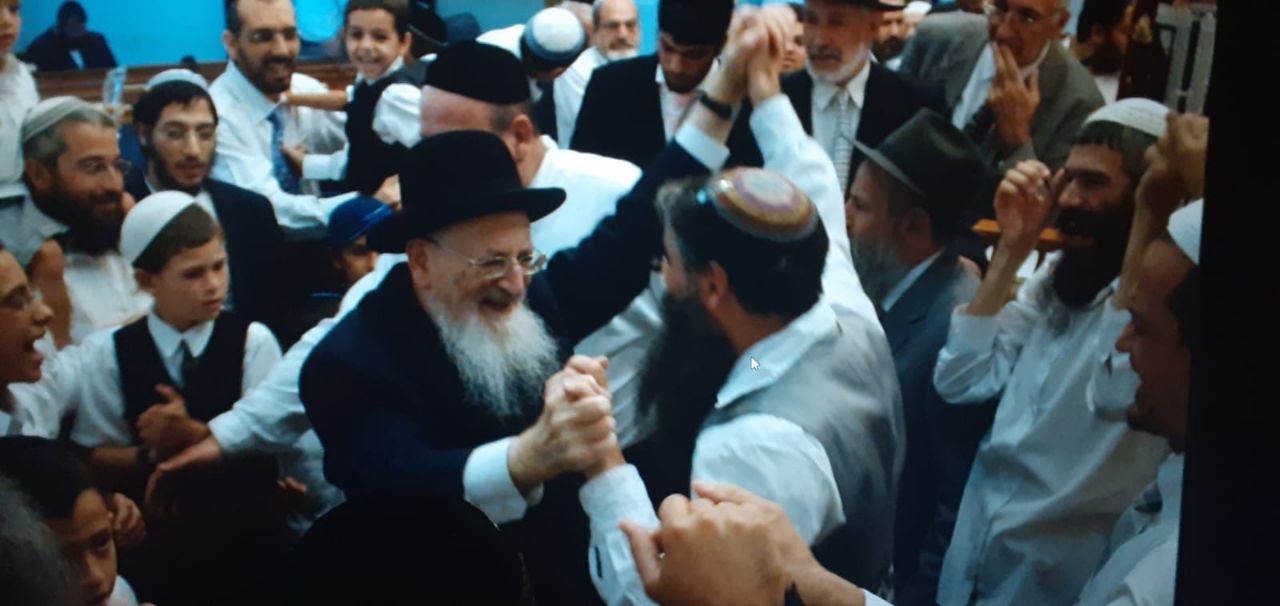
You said you came to Israel alone. Wasn't that hard?
"Of course, it wasn’t easy. I came to Israel without any relatives, not knowing the language at all. But I must say, I have never used the word 'hard' concerning aliyah. I made aliyah during the Parsha of 'Shelach,' which speaks about the sin of the spies. For me, it was a sign from heaven, and I decided I would never say a negative word about the land of Israel. During that time, I was in ulpan for a few months to learn Hebrew, and around me, other immigrants from France were constantly complaining about how Israel was not like France. I remember reprimanding them one day: 'You didn’t come to Israel to learn how to be French, but to learn how to be Israeli!'
"In general, I try to thank Hashem even in the hardest times. By the way, since making aliyah 27 years ago, for the past 20 years, I haven't gone to France, despite many invitations for shows and lectures. I simply can't breathe the air there anymore; I need only the air of this land."
Dancing in Holiness
As Joseph adapted to the land and language, he continued to grow in his religious observance. One day, he was invited to perform before a religious audience. "Naturally, I understood it was more appropriate to dance to Hasidic songs and prepared a lot for this performance because I had to match my dancing style to the music and audience. It was my first time dancing with a Hasidic style, and I suddenly felt such a deep connection to it. The dance became so clean and pure—something I’d never tasted before. Since then, I've sought more performances like these."
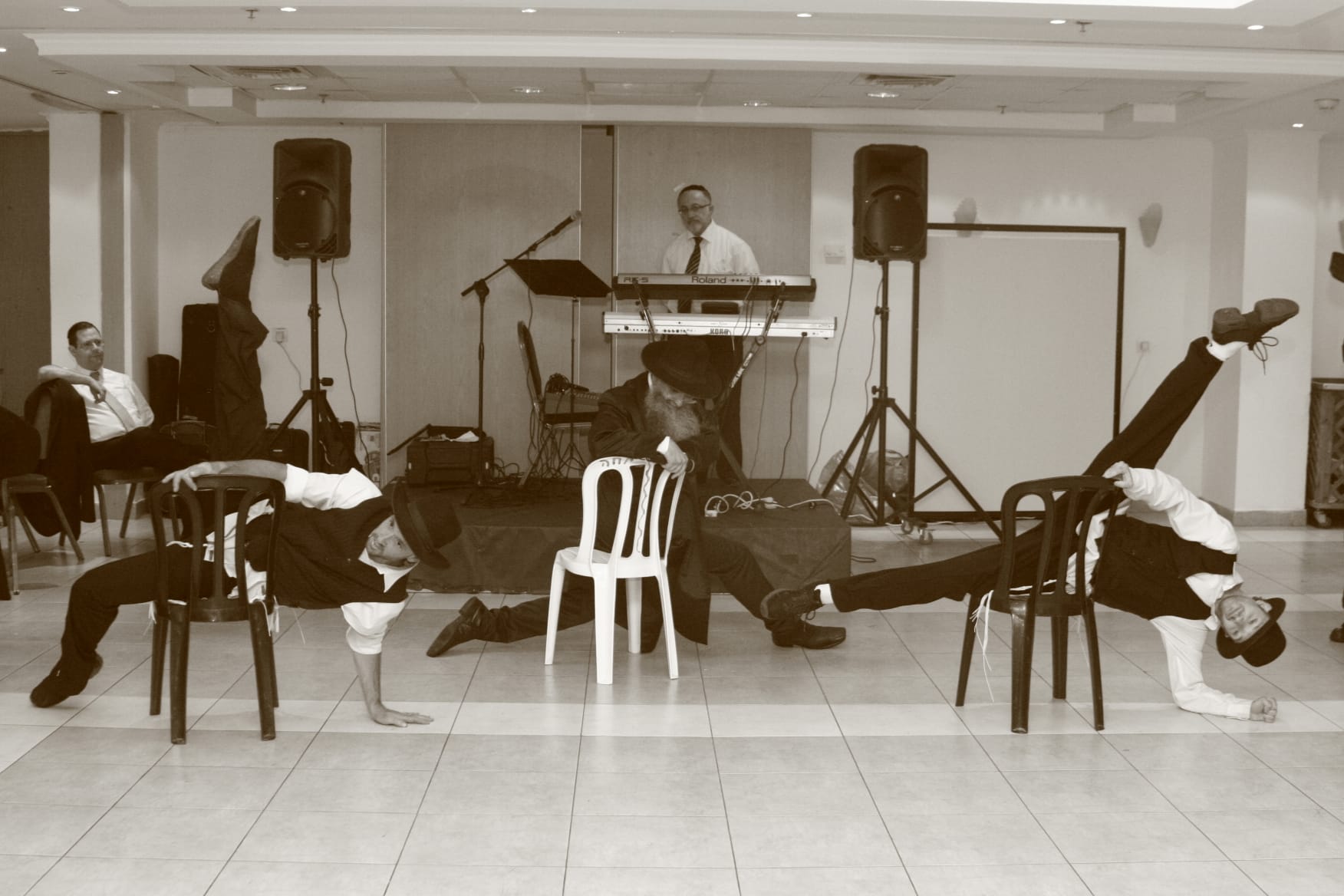
Meanwhile, Joseph met his future wife, who was also becoming observant, and together they continued their spiritual journey. "Of course, as we became more observant, it was clear to me that I was leaving my previous dance style completely," he notes. "I started changing all the music and dance to religious styles."
Not long after, on Simchat Torah, he was invited to dance before Rabbi Mordechai Eliyahu, may his memory be blessed, which was how they first met. "The rabbi really enjoyed my dancing," Joseph recalls, "he invited me to several more performances, and as I mentioned—he also gave me my name 'Joseph the Dancer.'"
Joseph accompanied the rabbi to many events, and during Rabbi Eliyahu's illness, he became his close driver. Today, he is the driver for the rabbi's son, Rabbi Shmuel Eliyahu.
"Recently," he adds, "together with Rabbi Shmuel and Yonatan Razel, I helped produce the prayer found in Rabbi Mordechai Eliyahu's pocket after his passing. I felt it was a great mission."
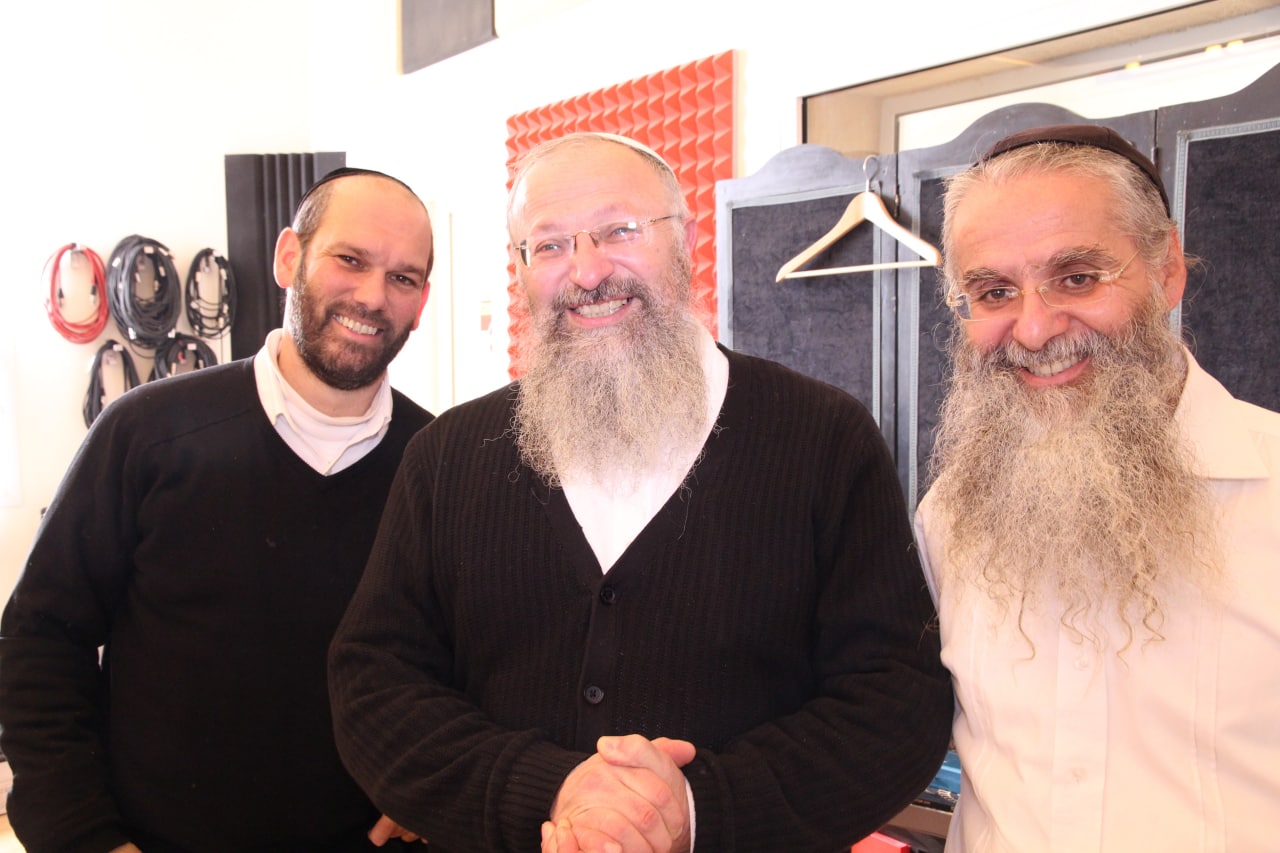 Levy with Rabbi Shmuel and Yonatan Razel
Levy with Rabbi Shmuel and Yonatan RazelEven today, after years of dancing, Joseph never rests. He continues to sing and dance, performing at various events where he combines music and dance with his story of returning to faith, as well as stories about aliyah and personal miracles, captivating audiences, sometimes with the addition of other dancers and singers. "There was a time when I thought of quitting, thinking maybe I had done my part, but Rabbi Mordechai Eliyahu wouldn't let me. He told me: 'It's a Kiddush Hashem.' Since then, I remind myself each time of the great mission here, that I'm not just dancing, but truly aiming to bring hearts closer. Indeed, there have been several moments where people have told me that my dances and songs brought them closer to Hashem."
As an artist familiar with more permissive styles of dance, do you feel you have to compromise when dancing in holiness?
"Not at all," he answers confidently. "On the contrary, I feel the new style enhances my performance. Whereas in the past, I danced primarily for money or ego, today, the dance comes from the soul, and I feel because of this, I can also touch people's souls. My dream is to merit dancing and singing in the Beit Hamikdash (Holy Temple)."
In parallel to dancing, Joseph studies daily at the 'Ways of Torah for Rabbis' kolel, and he invests in encouraging aliyah from France to Israel. "I've always tried to help new immigrants as much as possible, and recently, I understood that the language barrier is what holds many Jews back from making aliyah. So, I developed a unique method for them to learn Hebrew, based on 'Two New Words a Day'—each day, I publish two new words, and after a year, they have acquired 730 words. While this doesn't constitute an entire language, it makes coming to the land easier. I now have groups with hundreds of participants."
And your family, have they also made aliyah?
"My mother passed away in France, but my father was fortunate to make aliyah and passed away a few years ago. Both he and my mother are buried in Israel, as they always wished. My siblings also live here now. This is our place; there's no other land for us."

